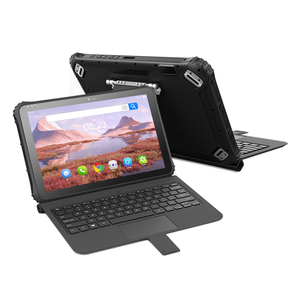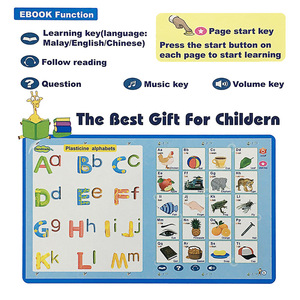
All categories
Featured selections
Trade Assurance
Buyer Central
Help Center
Get the app
Become a supplier

(192 products available)














































A laptop e-book is a digital version of a printed book. They are stored in electronic formats that can be accessed using a computer, tablet, or any other device. The beauty of these kinds of books is that they can be read on diverse gadgets, making them convenient and portable. The popularity of laptop e-books has grown significantly over the years, and this can be attributed to their practical and ease-of-use attributes.
Laptop ebooks come in different types, each with unique functionalities. They include:
Aftersales support is essential for buyers when selecting an eBook reader supplier. Reputable eBook laptop suppliers provide aftersales services to address any potential issues with their products. This support may include troubleshooting assistance, software updates, and repair services. By choosing a supplier that offers aftersales support, buyers can have peace of mind knowing that they will receive assistance if problems arise. It helps maintain the functionality of their eBook readers and ensures a seamless reading experience. Additionally, some suppliers may offer warranty coverage for their eBook readers. This coverage can vary in terms of duration and scope of protection. Warranties safeguard against manufacturing defects, providing buyers with a reliable and protected investment. When reviewing warranty policies, buyers should pay attention to the coverage details, including the duration and the specific defects included. A well-structured warranty policy can give buyers confidence in the quality and longevity of their purchased eBook readers.
Various forms of aftersales support can significantly influence the customer experience and satisfaction levels. Timely and responsive aftersales support promptly addresses customer inquiries and concerns. Customers feel valued and heard and have their issues resolved quickly. It, therefore, fosters a positive customer relationship and encourages future business. Proactive aftersales support anticipates potential issues and reaches out to customers proactively. Doing so allows for the swift resolution of any problems that may arise. It reinforces buyers’ trust and confidence in the supplier. Regular communication in aftersales support keeps customers informed about product updates, maintenance tips, and other relevant information. Good communication strengthens the supplier-customer relationship and ensures customers get the most benefit from their purchase.
In addition to these, aftersales support can be a valuable asset to any business. It enhances the rapport between the supplier and the customer, resulting in enduring relationships. This, in turn, can lead to repeat purchases and positive referrals, thus solidifying the supplier's position in the market. After all, customer loyalty and satisfaction are key to sustained success and growth in any business.
The versatile ebook reader on a laptop finds application in various domains. Here are some of them:
When buying a laptop wholesale for the eBook market, it is necessary to select based on the target consumers' preferences. The following are other important factors to consider when buying a laptop for eBooks.
Q1: What is the difference between an eBook and a printed book?
A1: While printed books are physical copies that one can hold and read, electronic books or eBooks are digital versions of books meant to be read on a computer or other electronic device. eBooks are more affordable than printed books and come with additional features like search, adjusting font size, and read-aloud options.
Q2: What should one look for in a good eBook reader?
A2: Several factors, including display type and size, battery life, storage, and weight, should be considered when choosing a good eBook reader. The display should be crisp with a high-resolution to avoid eye strain. A large screen size offers a better reading experience, but a compact device is quite handy. The battery of a good eBook reader should last for weeks without requiring a recharge. A large storage space can hold thousands of books, while a light device is easy to carry around.
Q3: Why is eBook formatting important?
A3: Proper formatting makes an eBook visually appealing and improves the reading experience. Well-structured eBooks are easy to read on different devices, increased customer satisfaction and sales for the author.
Q4: What are the benefits of eBooks?
A4: eBooks are easy to store, take up little storage space on a computer or other devices, and be accessible anywhere and anytime. They are more economical than printed books, environmentally friendly as they reduce paper waste, and come with interactive features like audio and video.